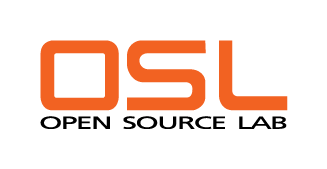National Community Wireless Summit
http://www.communitywirelesssummit.org/
Notes
Friday
Robert W. McChesney U of Illinois
Introduction
Harold Feld
Changing the World on Five Minutes a Day
Policy discussion on FCC
Dinasaurs die hard. Similar to mid 90s. Tradegy of the 90s...
Technology doesn't want anything.
Tools for good or whatever.
It could go either way in Washington DC
Licensees have adopted new strategy.
There side... lots of lobbist..
What do we have?
Changing the world on 5 minutes a day.
We have full time jobs.
1) Recognition that we have to work together.
It's not one person, one conversation. Meeting with FCC people on a regular basis. Everybody has to comment on open FCC proceedings. Free up spectrum for community wireless. Each comment builds a record at the FCC. Our silence has an impact as well. The biggest fear our friends at the FCC is if there's a party and nobody shows up.
Find our voice.
It's *great* to have industry allies, but they can't be allowed to speak for us. If they do... then the backroom with Intel and Microsoft deal won't help except as an afterthought.
Find our voice. Here, Local, National. How to tell that story well? How to reach the people on the Hill. Polcy makers are very open when people have something to say.
Leaders who should be part of this movement shrug their shoulders when the FCC does something we don't like.
Jim Baller
Community Broadband: The Struggle for Local Choice
Reminds him of the 1890s
Recognizing the importance of electrification
3000 communities developed their own electrical system.
Roughly 1000 communities sold their systems to private sector.
2000 are left in small, rural communities.
10K or less.
Some large public power SEATTLE, LA, JACKSONVILLE, ETC. Public could provide for themselves. Municipalized private power.
Fast forward a century.
Electrical utilities are massive uses of communication systems. Remote meter reading. As massive users they have infrastructure, relationships, ethics.
Bandwidth Comparisons By Jonathan Moore formely GC PUD, WA Chart
600k - 3Mbs Telco/Cableco
Things get interesting at 100Mbs
Public utilities with fiber are at Gig-E
We need to be there. Not going to get there if we wait for the private sector to get there.
Where are we today in community broadband?
Surge of interest over the last few years. Lots of models.
Fiber, wireless where fiber is not fesible.
www.appanet.org
Birdseyes View of Legal Issues
- Key Entry Issues
- Barries to entry
- Procedural issues
- Business model and orgniazational structure
- Financing and tax issues
- Set-up and Post-entry issues
- Federal, state and local requirements
- New rules -- IP-enabled services
Federal law does not authorize communications. That's in the states and local governments. Laws very different from state to state.
The Missouri Case
- Telecom Act Part 253 preempts state laws that prohibit "any entity" from providing any telecom service
- In Nixon v. MML, Supreme Court held that "any entity" not clear enough to cover public entitles, but state
- Decision did not rule on merits of public entry
- Public entities have "respectable position" on this
- FCC "denounced" laws such as Missouri's
- Ten amici briefs supported public entry
No effect in most states
Exisiting barriers stay in effect (bur read them with care!)
- AR, FL, MC, MO, NE, SC, TX, UT, VA, WA, WI
New propased state laws and challenges before PSCs
- 2004 - FL, GA, IA, LA, NE, UT, VA, WA, WI
Vicious local campaigns (www.tricitybroadband.com)
- 2004: Palo Alto, CA; Concord, MA; Lafayette, LA
New federal legislation?
of its own, will, in most cases, guarantee good service and low rates to its population. I might call the right of the people to own and operate their own utility a birch rod in the cupboard, to be taken out and used only when the child gets beyond the point where more scolding does any good." --Franklin D. Roosevelt, Portland, OR (1932)

